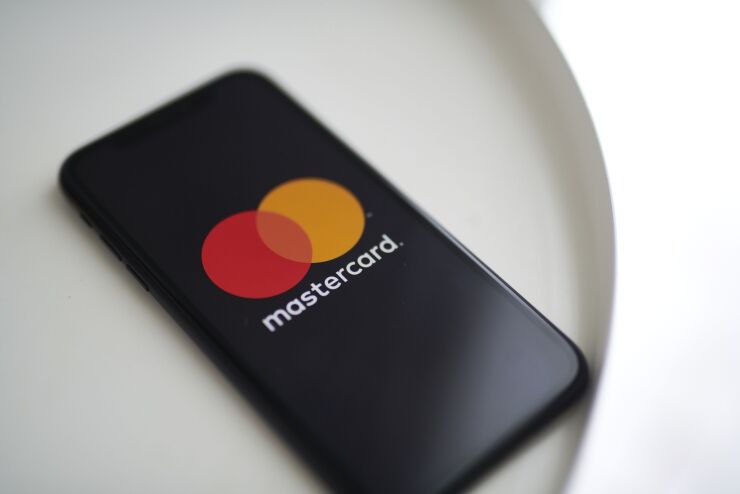Mastercard shareholders voted against four investor proposals at its annual meeting Tuesday, including demands for greater scrutiny over how the company gives to charities and enables ghost gun purchases.

The decisions put Mastercard in company with other public financial behemoths that resisted recent activist shareholder efforts targeting environmental, social and governance issues. In
The defeated ghost gun action, led by the public Employees’ Retirement System of Rhode Island, called for Mastercard to submit a report, omitting proprietary information, within a year that would have detailed how the company planned to limit its role in financing individuals who use its payment services to buy and assemble "buy, build, shoot" firearms kits into untraceable "ghost guns." In a

In response, Mastercard defended its existing policies which it said support "lawful" gun purchases. "If illegal activity is identified, we work with partners to act," the company said in the proxy statement. "We levy financial penalties and suspend or terminate the licenses of customers based on specific incidents if we identify a pattern of unlawful activity."
The company cited its desire to balance "a thoughtful consideration of the risks involved" with protecting consumers' data privacy, "which would be impacted by any decision by us to gather more information about their transactions," it said in the statement.
The National Legal and Policy Center, a right-of-center group, had led the campaign for more detailed disclosure of Mastercard's philanthropic activities and demanded an itemized list of all Mastercard charitable donations of $1000 or more. In the proxy statement, it said Mastercard executives exercise "
"Current disclosure is insufficient to allow the Company’s Board, its shareholders, and its current and prospective customers to fully evaluate the charitable use of corporate assets," the policy center said in the statement.
In response, Mastercard referred shareholders to its online corporate sustainability report and the 990 forms of its foundation arms.
Mastercard fended off two other shareholder proposals in the vote, including a request by veteran gadfly investor
Mastercard's board had recommended unanimously that shareholders nix all four of the proposals.
Shareholders also voted to reapprove the entire board of directors for another one-year term at the meeting, approved executive pay packages and recertified PricewaterhouseCoopers as the company's accountants.





